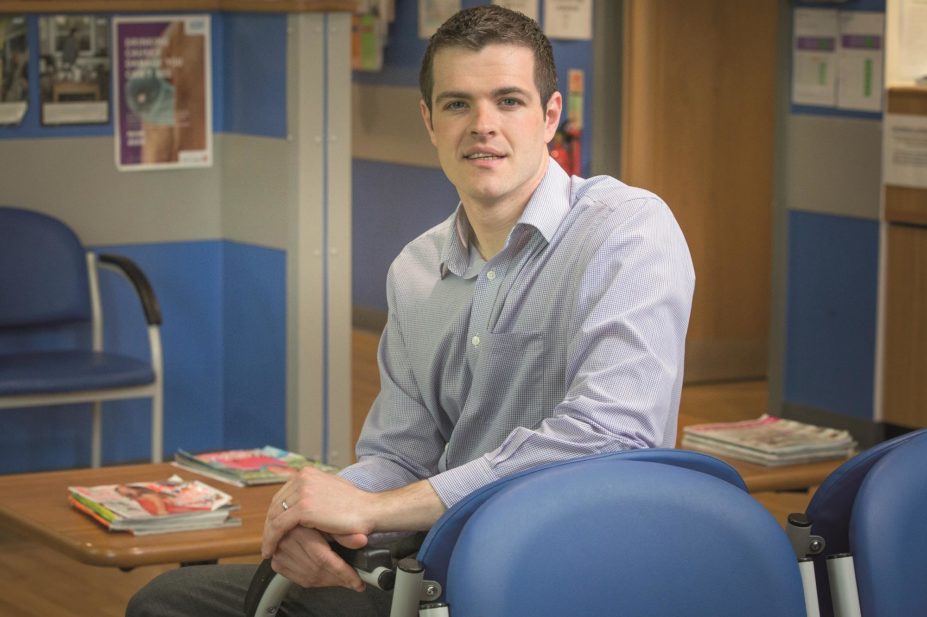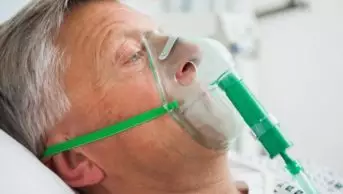
Andrew Sturrock is thought to be the first clinical research pharmacist to be based in a GP practice in the UK. He describes his first impressions of his role at Coquet Medical Centre in Northumberland.
What is your professional background?
I began my career with my preregistration year in hospital pharmacy followed by two years as a rotational clinical pharmacist. I left hospital pharmacy to take up a split role between community pharmacy and primary care. As part of this role I managed a busy community pharmacy and worked as a practice pharmacist in a GP surgery. I also had the opportunity to manage an anticoagulant clinic and run services such as nursing home medication reviews. I moved to my current post as senior lecturer in pharmacy practice at the University of Sunderland in September 2015.
What attracted you to become a clinical research pharmacist in a GP practice?
The University of Sunderland is fantastic at supporting external engagement and encourages all of its practice team to maintain links with clinical practice. Because I have come from a practice background as opposed to the traditional academic route, I spent my first year completing an MSc research project with Scott Wilkes, a GP and primary care lead for the North East and Cumbria Clinical Research Network. His practice was aiming to become more research active and an opportunity became available for me to help drive this forward. This will enable me to maintain and develop my clinical skills, gain exposure to research and feedback current practice to the undergraduate programme.
GP practices have not typically had the medicines expertise of a pharmacist on site, assessing the suitability of patients to take part in trials
What will the role involve?
My new role will involve recruiting patients to National Institute for Health Research (NIHR) portfolio studies. The NIHR is the research arm of the NHS.
There has been a recent drive to place more pharmacists in GP practices. However, as far as I am aware, I am the first pharmacist with the specific remit of recruiting patients to research studies. Although GP practices do participate in clinical trials, with nurses, practice managers and GPs recruiting patients and delivering interventions including taking blood samples and conducting questionnaires, they have not typically had the medicines expertise of a pharmacist on site, assessing the suitability of patients to take part in trials.
This role will require me to review research protocols, identify patients at the practice who are suitable for participation and liaise with the clinical research network. There are many types of studies for general practices to get involved with — some will involve only simple database searches but more complex studies will require me to review medication records in detail and have in-depth discussions with patients about the research and its implications on their care. For example, a study may require patients to change their medication regimen and so they will have lots of questions.
By working in the practice and being available to discuss patients’ concerns and queries about the studies, I endeavour to increase patient participation in research. My role will also involve updating the practice staff at regular team meetings about the patients who have been recruited and the research studies taking place in the practice.
What will your first project be?
The GPs and I will start with a small project to help build a positive research culture among both the patients and the staff at the practice. We have therefore begun by recruiting patients to an established study called DARE (Diabetes Alliance for Research in England), which requires patients to attend the practice for a blood and urine test, which is then used by the researchers to look for gene and environment interactions in the development of diabetes and its complications.
I have also started reviewing patients for a second study looking at the use of antiplatelet therapy for primary prevention in patients with chronic obstructive pulmonary disease. This will require patients to be prescribed an antiplatelet and therefore patients must be screened carefully.
I have so far been pleasantly surprised by the positive response from patients and their eagerness to participate in research at the practice
What skills do you have that you believe will be useful in your new role?
There are many questions patients taking part in clinical trials often ask, including: “What does this mean for the medicines I currently take?”, “What if I stop this medicine?”, “What’s a placebo?” and “Should I still be taking this medicine?” Because I have a mixture of clinical, academic and pharmacy skills, I am ideally placed to answer such questions.
My clinical knowledge also enables me to review medical records and appropriately screen patients for participation in research. To do this, I have to liaise with medical and practice staff, meaning my experience of working in primary care is essential.
Additionally, because I am also actively involved as a researcher in my own right, I have an insight into the design and delivery of a successful research project.
What have you found surprising so far?
Initially, I believed my biggest challenge would be convincing patients about the benefits of research and dispelling any concerns that they have about participating. Patients are naturally cautious and encouraging them to participate in a study, which involves taking new medicines or changing their medication regimen, could be problematic. However, I have so far been pleasantly surprised by the positive response from patients and their eagerness to participate in research at the practice. Half of the patients who I identified as suitable for the first research study have agreed to take part. Successfully delivering our first research clinic has been a positive experience for both patients and practice staff.
The range of research currently underway in the region also surprised me — there are some fantastic projects available at the cutting edge of healthcare research. This is something that we should be sharing and there are ample opportunities for getting more practices and pharmacies involved with research.
What do you hope to achieve in your first year in the role?
In the first year my aim is to create a positive attitude towards research at the practice. By starting small and building on our success, I hope to engage the whole practice team and patients in the research. Our goal is to run the first successful CTIMP (Clinical Trial of an Investigational Medical Product) in general practice in the North East and Cumbria network. I want to engage with local pharmacies — encouraging them to become active in research would be a great development for the role of the community pharmacy.


